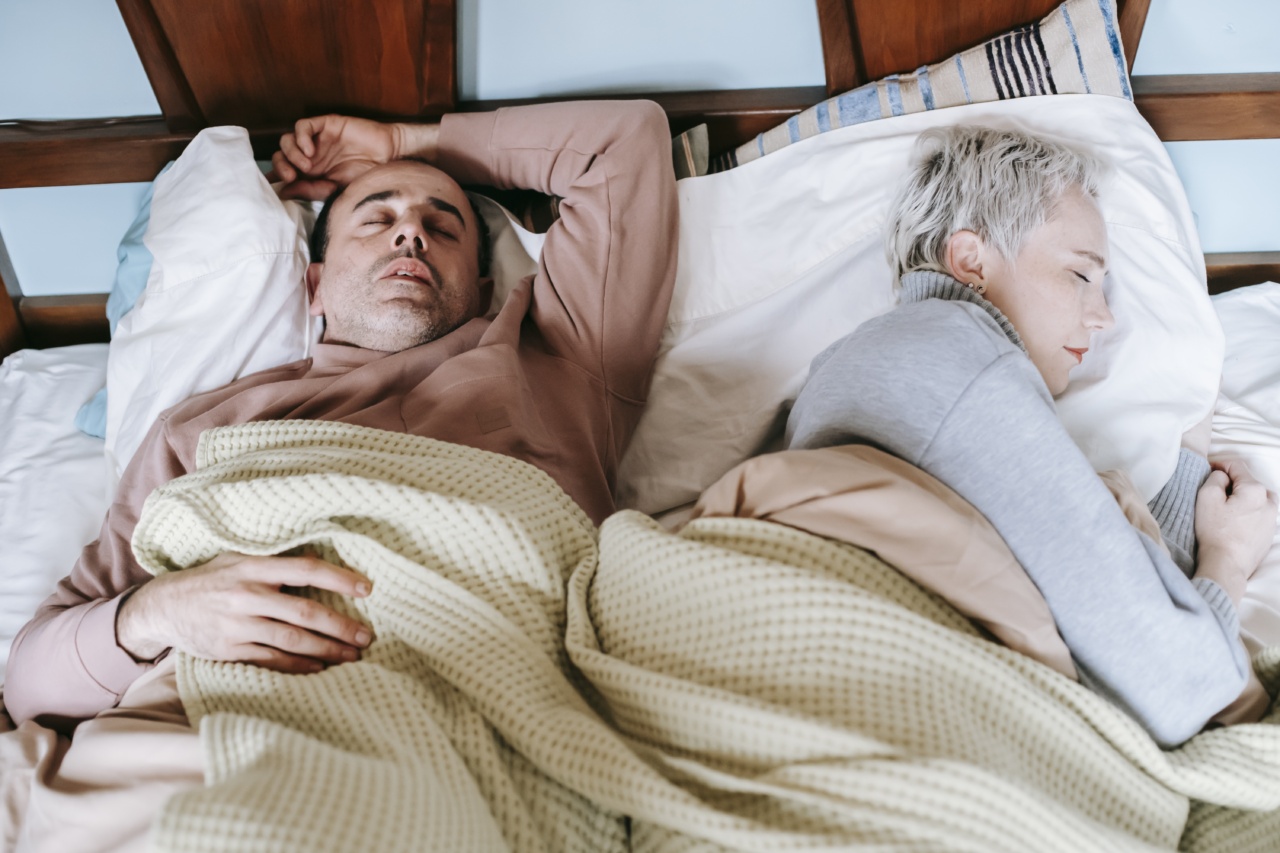Sleep is essential for the human body, and proper sleep ensures a healthy lifestyle. It affects almost all aspects of health and wellbeing, from cognitive function to physical health.
However, sleep patterns vary during different stages of life, and it is common for sleep habits to change with age. Furthermore, sleep changes can lead to sleep disorders and interfere with daily activities, quality of life, and overall health. In this article, we will discuss the common sleep changes that occur with age and their effects on health.
Age and Sleep
Sleep patterns change significantly as a person grows from infancy to old age. Children need more sleep than adults, and older adults require less sleep. During infancy, babies spend more time in REM sleep, which is essential for brain development.
Children and adolescents require more sleep than adults due to their physical and mental growth needs. Adolescents, especially, have sleep problems due to changes in their circadian rhythms, social and academic pressure, and biological changes.
As adults get older, their sleep structure, timing, and quality can change due to age-related changes in their bodies.
Older adults may experience sleep fragmentation and wake up repeatedly throughout the night, leading to less restful and restorative sleep. Older adults may also experience a phase shift in their circadian rhythms, resulting in going to bed and waking up earlier than before.
In short, there is a natural decrease in the amount of sleep needed as we age. According to the National Sleep Foundation, adults aged 26-64 require 7-9 hours of sleep each night, while older adults may require 7-8 hours of sleep each night.
Common Sleep Changes with Age
Let’s discuss some of the most common sleep changes that occur with age:.
Change in Sleep Architecture
Sleep architecture refers to the structure and pattern of different stages of sleep. Sleep is divided into two categories: NREM sleep and REM sleep. NREM sleep is divided into four stages, and REM sleep is characterized by quick eye movements.
As a person ages, the proportion of NREM and REM sleep shifts. Older adults spend less time in deep sleep (stage 3-4 NREM sleep) and more time in light sleep (stage 1-2 NREM sleep) and REM sleep compared to younger adults.
The change in sleep architecture leads to less restful and restorative sleep, resulting in daytime sleepiness and fatigue.
Change in Sleep Duration
As mentioned earlier, the amount of sleep needed decreases with age. Older adults may experience a decrease in their overall sleep duration and wake up earlier than before.
They may also experience napping during the day to compensate for less nighttime sleep. However, long naps can interfere with nighttime sleep and further disrupt the sleep-wake cycle.
Change in Circadian Rhythms
The body’s internal “clock” that regulates sleep-wake cycles is called the circadian rhythm. As we age, our circadian rhythms may change, leading to earlier bedtimes and waking up earlier.
This shift can cause difficulty falling asleep at night, resulting in daytime sleepiness and fatigue.
Change in Sleep Quality
Older adults may experience more sleep disruptions than younger adults, leading to less restful sleep. Sleep disruptions can include waking up to use the restroom, respiratory issues like sleep apnea, and noise disturbances.
These disruptions can decrease the quality of sleep and lead to daytime sleepiness and fatigue.
Change in Melatonin Production
Melatonin is a hormone that regulates sleep-wake cycles. It is produced in the brain’s pineal gland and regulated by light exposure.
As we age, our melatonin production decreases, resulting in less regular sleep patterns and difficulty falling asleep at night.
Effects of Age-Related Sleep Changes
Age-related sleep changes can have a significant impact on a person’s health and wellbeing. Lack of sleep or poor sleep quality can lead to several health problems, including:.
Cognitive Function
Studies have shown that lack of sleep or poor sleep quality can affect cognitive function, including memory, attention, and problem-solving skills.
Physical Health
Studies have linked poor sleep quality to various physical health conditions, including obesity, diabetes, high blood pressure, heart disease, and stroke.
Mental Health
Poor sleep quality can also affect mental health, leading to depression, anxiety, and mood disorders.
Daytime Functioning
Lack of sleep or poor sleep quality can interfere with daytime functioning, including decreased productivity, irritability, and a higher risk of accidents and injuries.
Tips for Better Sleep
The following tips can help improve sleep quality, especially for older adults:.
Stick to a Schedule
A consistent sleep schedule can help regulate the body’s internal clock and improve sleep quality.
Limit Stimulants
Avoiding stimulants like caffeine and nicotine before bedtime can improve sleep quality.
Create a Relaxing Environment
A quiet, dark, and cool environment can improve sleep quality. The use of earplugs, eye masks, or white noise machines can also help.
Engage in Physical Activity
Regular physical activity can improve sleep quality and duration. However, avoid intense exercise before bedtime as it can interfere with sleep.
Avoid Napping
Long naps during the day can interfere with nighttime sleep. If necessary, limit naps to 30 minutes or less.
Conclusion
As we age, our sleep patterns naturally change. Understanding the common sleep changes that occur with age and their effects on health can help individuals take steps to improve their sleep quality.
Maintaining a healthy sleep schedule, creating a relaxing sleep environment, and engaging in regular physical activity can all improve sleep quality. Consulting with a healthcare provider can also help identify any underlying sleep disorders and provide appropriate treatment.































